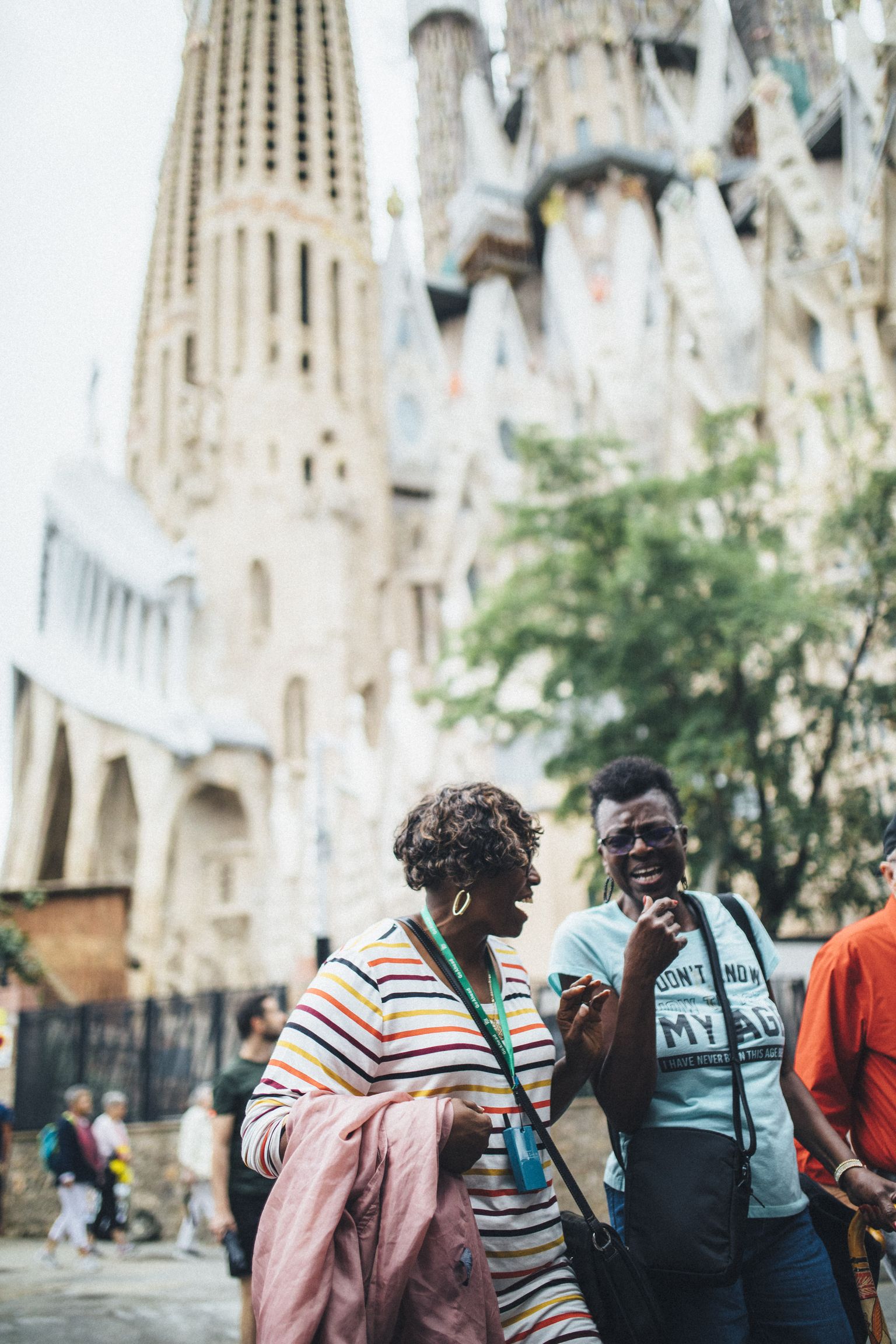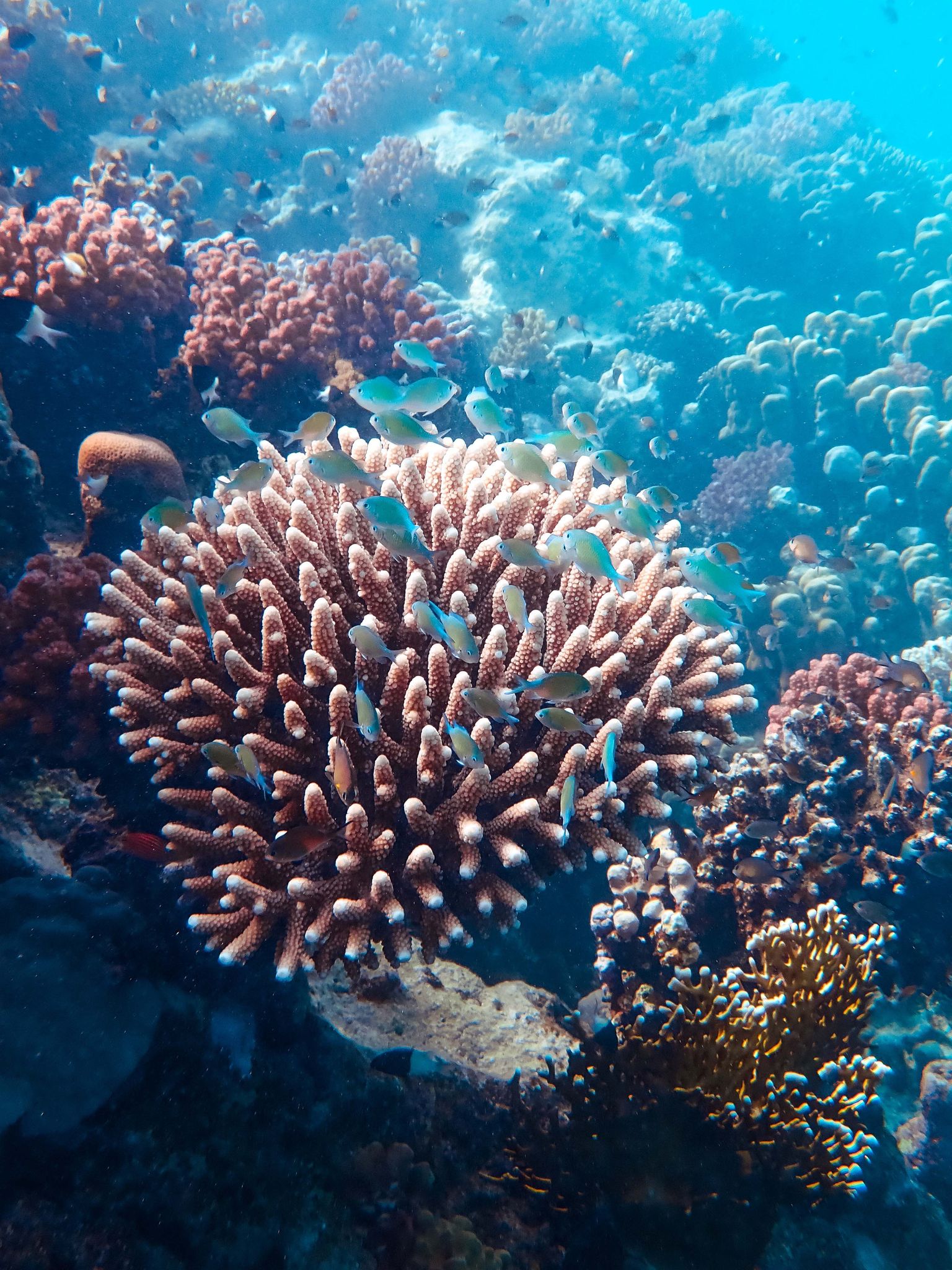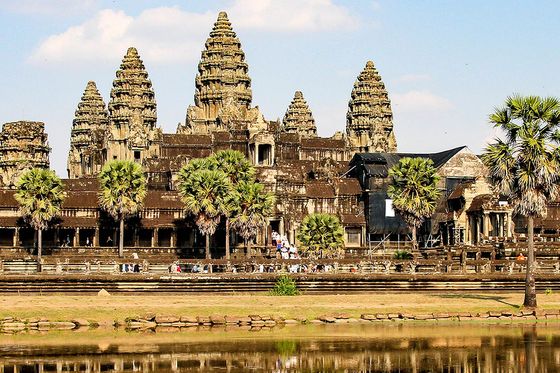Cambodia tours
You haven't really seen lost cities until you've been to Cambodia. Visit awe-inspiring temples and explore cities with out-of-this-world architecture and history, all on our tours to Cambodia.
What travelers are saying about our Cambodia tours
5 out of 5 stars
1st-time traveler Muang
To be honest, my first thought of traveling to Thailand (my birth place) with a tour guide & group was not my first choice, especially since I have traveled there twice already....
Traveled in Jan 2025 on Grand Tour of Thailand: Bangkok, Chiang Mai & Phuket
5 out of 5 stars
1st-time traveler Sally
Just back and what a trip! I wanted to gain an understanding of the various cultural, geographical and historical aspects plus experience the lovely people and food of Thailand,...
Traveled in Jan 2025 on Grand Tour of Thailand: Bangkok, Chiang Mai & Phuket
5 out of 5 stars
1st-time traveler Cheng
My best tour in this trip it was so fun we’re so corporate and we had so much fun together. I Thank you appreciate miss Ben you are amazing you are so great tour guys and...
Traveled in Jan 2025 on Grand Tour of Thailand: Bangkok, Chiang Mai & Phuket
5 out of 5 stars
1st-time traveler Valeta
I recently finished this amazing tour. This tour totally exceed my expectations. The wonderful landmarks was a feast for the eyes. The hotel accommodations made for a relaxing &...
Traveled in Feb 2025 on Grand Tour of Thailand: Bangkok, Chiang Mai & Phuket
5 out of 5 stars
1st-time traveler Maribeth
I am over the top thrilled with this spectacular tour The activities were outstanding, lots of fun and properly exhausting EF Go Ahead runs a tight ship and we were well taken...
Traveled in Jan 2025 on Grand Tour of Thailand: Bangkok, Chiang Mai & Phuket
5 out of 5 stars
1st-time traveler Jofina
This being my first out of country travel, I felt safe from the get go with the guide that we were assigned with. Benchaporn went above and beyond as our guide during the trip....
Traveled in Jan 2025 on Grand Tour of Thailand: Bangkok, Chiang Mai & Phuket
5 out of 5 stars
1st-time traveler Edyie
I love to travel and travel often. But this trip was above and beyond anything I’ve ever experienced! Go ahead tours, and Benny made it the most spectacular trip ever! 12 in our...
Traveled in Jan 2025 on Grand Tour of Thailand: Bangkok, Chiang Mai & Phuket
5 out of 5 stars
1st-time traveler Virginia
Rsthapoom, AKA Mr Bond. Amazing human being, great guide,and very knowledgeable , intelligent, down to earth, accessible, kind person. Having him as my tour guide, made me feel so...
Traveled in Jan 2025 on Grand Tour of Thailand: Bangkok, Chiang Mai & Phuket

Traveling with a group?
Bring 6+ friends with you, and your spot is free (including airfare)!
Learn more
Combine your Club Go credits
Earn rewards for every trip with Club Go’s automatic, free membership.
Join our loyalty program)
Already booked? Add excursions!
Add handpicked experiences and stay longer on a tour extension.
Customize your tourExperiential travel made easy
You dream it. We’ll take care of every last detail.
Pick your perfect trip
We offer 200+ immersive, guided tours around the world. Wherever you choose to go, you’ll enjoy lots of advantages that make traveling with us different.
Put just $99 down
That’s all it takes to secure a spot on one
of our group tours when you sign up for
AutoPay. Plus, you can pay in interest-free,
monthly installments.
Prep your packing list
While you’re deciding what to take, we’ll be busy arranging your hotels, meals, tickets, and more tour essentials. That’s what going guided is all about.
Go far (and get rewarded)
Take off on your big adventure— but why stop there? Every trip you book with us earns rewards that you can use to keep expanding your horizons.
Not sure which Cambodia tour is right for you? We're here to help.

Chat online
Chat instantly with us during our normal hours, or leave a message and we’ll get back to you ASAP.
Schedule a call
Let us know your preferred time to chat and a travel expert will reach out.
Travel tips for Cambodia trips
The ideal duration for a trip to Cambodia can vary depending on your interests, the places you want to visit, and the activities you wish to engage in. However, we generally recommend at least three days for tours in Cambodia.
One of the world’s oldest civilizations, Cambodia offers a dazzling array of activities from historic to natural wonders. Here are some of the most popular activities to participate in while on Cambodia tours, especially if you are only there for a few days:
- Explore Angkor Wat. Visiting the magnificent Angkor Wat temple complex in Siem Reap is a can’t-miss activity. Exploring these ancient temple complexes, marveling at their architecture, and learning about the history and culture of the Khmer Empire is a must for many visitors. A bonus is the stunning sunrises and sunsets.
- Cruise Tonlé Sap Lake. The largest freshwater lake in Southeast Asia stretches as far as the eye can see. As you cruise the lake, you’ll pass by floating villages built on stilts and floating platforms. A stop at the floating markets, where locals gather to trade their goods, such as fresh produce, fish, and handicrafts, is a must.
- Visit the Land Mine Museum. A visit to Cambodia’s Land Mine Museum is a sobering and educational experience that sheds light on the country’s tragic history of landmines and the ongoing efforts to address this issue.
On all our tours to Cambodia, you’ll visit awe-inspiring temples and explore cities with out-of-this-world architecture and history. Here are some of the top attractions in Cambodia that draw visitors from around the world:
- Angkor Wat. This massive temple complex is one of the most popular tourist destinations in the world. It was built in the 12th century by King Suryavarman II and is considered one of Southeast Asia’s most important archaeological sites. The UNESCO World Heritage site is renowned for its stunning architecture, intricate carvings, and grandeur.
- Terrace of the Elephants. This grand terrace in Angkor Thom served as a platform for royal processions and ceremonies showcasing the Khmer Empire’s grandeur. It is adorned with intricate bas-reliefs of elephants in various poses, some standing, some kneeling, and some rearing up on their hind legs.
- Ta Prohm. This magnificent temple located within the Angkor Archaeological Park in Siem Reap is surrounded by dense jungle. Massive tree roots have intertwined with the structures, creating a captivating and mystical atmosphere.
The best time to take tours in Cambodia depends on your preferences and the specific experiences you are seeking. Here are some considerations for different seasons:
- Cool Season (November to February). This is generally considered the best time to visit Cambodia for most travelers. The weather is cooler and drier, making exploring the temples of Angkor, visiting the cities, and enjoying outdoor activities more pleasant.
- Shoulder Seasons (March and October). The shoulder months of March and October can be a good time for guided tours in Cambodia, as they fall between the hot and rainy seasons. The temperatures are still relatively moderate, and rain is less likely.
Cambodia has a tropical climate characterized by high temperatures and distinct wet and dry seasons. The weather can be divided into three main seasons: the cool season, the hot season, and the rainy season. To help you schedule the right time for Cambodia tour packages, here’s how the seasons generally run:
- Cool Season (November to February). This is considered the most pleasant time for trips to Cambodia. The weather is relatively cooler and drier, with average temperatures ranging from 65–75°F.
- Hot Season (March to May). High temperatures and humidity characterize the hot season in Cambodia. Daytime temperatures range from 86–95°F, sometimes exceeding 100°F.
- Rainy Season (June to October). Cambodia’s rainy season brings regular rainfall, often in the form of afternoon showers and occasional thunderstorms.
Cambodian cuisine offers a delightful blend of flavors, drawing influences from neighboring countries such as Thailand and Vietnam. Here are some popular dishes you should try on Cambodia tours:
- Amok. Considered Cambodia’s national dish, Amok is a creamy curry made with fish (typically catfish or snakehead fish), coconut milk, and spices. It is often steamed in banana leaves and served with rice.
- Khmer red curry. This spicy and aromatic curry is made with a rich paste of lemongrass, galangal, turmeric, garlic, and other spices. It is typically cooked with meat (chicken, beef, or fish), vegetables, and coconut milk. It is best enjoyed with rice or a baguette.
- Beef skewers (sach ko ang). Marinated in a flavorful mixture of lemongrass, garlic, and soy sauce, beef skewers are often served with a dipping sauce made from lime juice, salt, and pepper.
- Fresh spring rolls (lumpia). Like Vietnamese spring rolls, Cambodian fresh spring rolls are made with rice paper filled with fresh herbs, vegetables, cooked meat or shrimp, and sometimes rice noodles. They are often served with a peanut dipping sauce.
When visiting Cambodia, it is important to show respect for the local traditions and customs. By being mindful of these cultural customs and practicing respectful behavior, you can enhance your interactions with locals and show appreciation for Cambodia’s rich traditions and customs. Here are some key points to keep in mind:
- Greetings. The traditional greeting in Cambodia is a slight bow, accompanied by placing the palms together in a prayer-like gesture called the Sampeah. It is customary to offer a greeting and a respectful nod when meeting someone for the first time or entering a home or temple.
- Dress Code. When visiting temples or other religious sites, it is important to dress modestly and respectfully. Both men and women should cover their shoulders and knees. Wearing shorts, sleeveless tops, or revealing clothing may be considered disrespectful.
- Tipping. Tipping is not customary in Cambodia but is becoming more common, especially in tourist areas. If you receive good service, a small tip is appreciated but not obligatory.
When packing for Cambodia vacation packages, it’s important to consider the tropical climate and cultural customs. Here’s a list of essential items to pack:
- Lightweight and breathable clothing. Pack loose-fitting, lightweight clothing made of breathable fabrics like cotton or linen to help you stay cool in hot and humid weather. T-shirts, shorts, skirts, and lightweight pants are ideal. Long-sleeved shirts and pants will also come in handy to protect against mosquitoes and sunburn.
- Sun protection. Bring sunscreen with a high SPF, sunglasses, and a wide-brimmed hat to protect yourself from the intense sun rays.
- Insect repellent. Cambodia has mosquitos, especially in rural areas and during the rainy season. Pack insect repellent containing DEET or other effective repellents to protect yourself from mosquito bites.
- Comfortable walking shoes. Tours to Cambodia involve a fair amount of walking, particularly when exploring temple complexes or visiting markets. Bring comfortable walking shoes or sandals that provide good support.
- Rain gear. If traveling during the rainy season (June to October), it’s advisable to pack a lightweight rain jacket or poncho and a travel umbrella to stay dry during occasional downpours.
- Travel adapter and charger. Cambodia uses Type A, C, and G power outlets, so make sure to bring a suitable travel adapter for your electronic devices.
- Reusable water bottle. To stay hydrated, bring a reusable water bottle to fill up with purified water. This will help reduce plastic waste and save you money on buying bottled water.
Once you’ve reserved one of our Cambodia vacation packages, we’ll send you detailed information about what to bring with you. Don’t forget to download the Go Ahead Tour Companion app before you take off, so you’ll have all the info you need about your trip right in your pocket.
The Cambodian riel (KHR) is the official currency of Cambodia. However, Cambodia’s most widely accepted and used currency is the U.S. dollar (USD). You may find it useful to have a supply of U.S. currency in small denominations, as many businesses, hotels, and restaurants, especially in popular tourist areas, quote prices and accept payment in USD.
Khmer is the official language of Cambodia. It is spoken by the majority of the population. However, English is becoming more commonly spoken, especially in popular tourist destinations.




